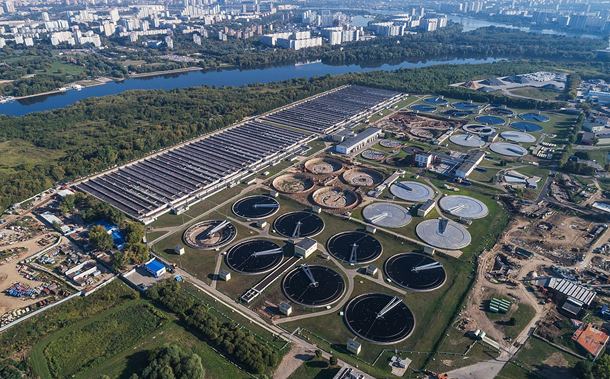Examining Social Acceptability of Solar Innovations in Smart Cities
Downloads
Doi: 10.28991/CEJ-2025-011-02-016
Full Text: PDF
Downloads
[2] Maqsoom, A., Hammad, M., Umer, M., Salman, A., & Ashraf, H. (2024). From intentions to actions: unveiling the socio-psychological drivers of solar home system adoption in developing nations. Architectural Engineering and Design Management. doi:10.1080/17452007.2024.2316658.
[3] Ferreira, L., Oliveira, T., & Neves, C. (2023). Consumer's intention to use and recommend smart home technologies: The role of environmental awareness. Energy, 263. doi:10.1016/j.energy.2022.125814.
[4] Schulte, E., Scheller, F., Sloot, D., & Bruckner, T. (2022). A meta-analysis of residential PV adoption: the important role of perceived benefits, intentions and antecedents in solar energy acceptance. Energy Research and Social Science, 84. doi:10.1016/j.erss.2021.102339.
[5] Kapoor, K. K., & Dwivedi, Y. K. (2020). Sustainable consumption from the consumer's perspective: Antecedents of solar innovation adoption. Resources, Conservation and Recycling, 152. doi:10.1016/j.resconrec.2019.104501.
[6] Hai, M. A. (2019). Rethinking the social acceptance of solar energy: Exploring "states of willingness” in Finland. Energy Research & Social Science, 51, 96–106. doi:10.1016/j.erss.2018.12.013.
[7] Billanes, J., & Enevoldsen, P. (2022). Influential factors to residential building Occupants' acceptance and adoption of smart energy technologies in Denmark. Energy and Buildings, 276, 112524. doi:10.1016/j.enbuild.2022.112524.
[8] Cousse, J. (2021). Still in love with solar energy? Installation size, affect, and the social acceptance of renewable energy technologies. Renewable and Sustainable Energy Reviews, 145, 111107. doi:10.1016/j.rser.2021.111107.
[9] Haque, A. N., Lemanski, C., & de Groot, J. (2021). Why do low-income urban dwellers reject energy technologies? Exploring the socio-cultural acceptance of solar adoption in Mumbai and Cape Town. Energy Research & Social Science, 74, 101954. doi:10.1016/j.erss.2021.101954.
[10] Garg, B., & Barach, R. (2021). Collaborative governance for urban sustainability: implementing solar cities. Asia Pacific Journal of Public Administration, 43(4), 236–257. doi:10.1080/23276665.2021.1925132.
[11] Rodríguez-Segura, F. J., Osorio-Aravena, J. C., Frolova, M., Terrados-Cepeda, J., & Muñoz-Cerón, E. (2023). Social acceptance of renewable energy development in southern Spain: Exploring tendencies, locations, criteria and situations. Energy Policy, 173, 113356. doi:10.1016/j.enpol.2022.113356.
[12] Westerlund, M. (2020). Social acceptance of wind energy in urban landscapes. Technology Innovation Management Review, 10(9), 49–62. doi:10.22215/TIMREVIEW/1389.
[13] Lucchi, E., Adami, J., & Stawinoga, A. E. (2023). Social acceptance of photovoltaic systems in heritage buildings and landscapes: Exploring barriers, benefits, drivers, and challenges for technical stakeholders in northern Italy. Sustainable Energy Technologies and Assessments, 60, 103544. doi:10.1016/j.seta.2023.103544.
[14] Mehmood, F., Umar, M., Dominguez, C., & Kazmi, H. (2022). The role of residential distributed energy resources in Pakistan's energy transition. Energy Policy, 167. doi:10.1016/j.enpol.2022.113054.
[15] Iten, R., Wagner, J., & Zeier Röschmann, A. (2024). On the Adoption of Smart Home Technology in Switzerland: Results from a Survey Study Focusing on Prevention and Active Healthy Aging Aspects. Smart Cities, 7(1), 370–413. doi:10.3390/smartcities7010015.
[16] Kumar, V., & Kaushik, A. K. (2022). Solar rooftop adoption among Indian households: a structural equation modeling analysis. Journal of Social Marketing, 12(4), 513–533. doi:10.1108/JSOCM-07-2021-0170.
[17] Qureshi, T. M., Ullah, K., & Arentsen, M. J. (2017). Factors responsible for solar PV adoption at household level: A case of Lahore, Pakistan. Renewable and Sustainable Energy Reviews, 78, 754–763. doi:10.1016/j.rser.2017.04.020.
[18] Jan, I., Ullah, W., & Ashfaq, M. (2020). Social acceptability of solar photovoltaic system in Pakistan: Key determinants and policy implications. Journal of Cleaner Production, 274. doi:10.1016/j.jclepro.2020.123140.
[19] Kardooni, R., Yusoff, S. B., & Kari, F. B. (2016). Renewable energy technology acceptance in Peninsular Malaysia. Energy Policy, 88, 1–10. doi:10.1016/j.enpol.2015.10.005.
[20] Do, T. N., Burke, P. J., Baldwin, K. G. H., & Nguyen, C. T. (2020). Underlying drivers and barriers for solar photovoltaics diffusion: The case of Vietnam. Energy Policy, 144. doi:10.1016/j.enpol.2020.111561.
[21] Kiefer, C. P., & del Río, P. (2020). Analysing the barriers and drivers to concentrating solar power in the European Union. Policy implications. Journal of Cleaner Production, 251. doi:10.1016/j.jclepro.2019.119400.
[22] Alipour, M., Irannezhad, E., Stewart, R. A., & Sahin, O. (2022). Exploring residential solar PV and battery energy storage adoption motivations and barriers in a mature PV market. Renewable Energy, 190, 684–698. doi:10.1016/j.renene.2022.03.040.
[23] Asante, D., He, Z., Adjei, N. O., & Asante, B. (2020). Exploring the barriers to renewable energy adoption utilising MULTIMOORA- EDAS method. Energy Policy, 142. doi:10.1016/j.enpol.2020.111479.
[24] Alshammari, S. H., & Rosli, M. S. (2020). A review of technology acceptance models and theories. Innovative Teaching and Learning Journal, 4(2), 12-22.
[25] Davis, F. D. (1989). Perceived Usefulness, Perceived Ease of Use, and User Acceptance of Information Technology. MIS Quarterly, 13(3), 319. doi:10.2307/249008.
[26] Ahmad, S., Mat Tahar, R. bin, Cheng, J. K., & Yao, L. (2017). Public acceptance of residential solar photovoltaic technology in Malaysia. PSU Research Review, 1(3), 242–254. doi:10.1108/PRR-11-2016-0009.
[27] Nkundabanyanga, S. K., Muhwezi, M., Musimenta, D., Nuwasiima, S., & Najjemba, G. M. (2020). Exploring the link between vulnerability of energy systems and social acceptance of renewable energy in two selected districts of Uganda. International Journal of Energy Sector Management, 14(6), 1089–1122. doi:10.1108/IJESM-08-2019-0007.
[28] Sommerfeld, J., Buys, L., & Vine, D. (2017). Residential consumers' experiences in the adoption and use of solar PV. Energy Policy, 105, 10–16. doi:10.1016/j.enpol.2017.02.021.
[29] Sahu, G. P., Singh, P., & Dwivedi, P. (2021). Adoption of solar energy in India: a study through interpretive structural modelling. World Journal of Science, Technology and Sustainable Development, 18(4), 457–473. doi:10.1108/WJSTSD-04-2021-0043.
[30] Sawyer, S. W. (1982). Leaders in change. Solar energy owners and the implications for future adoption rates. Technological Forecasting and Social Change, 21(3), 201–211. doi:10.1016/0040-1625(82)90050-6.
[31] Lau, L. S., Senadjki, A., Ching, S. L., Choong, C. K., Seow, A. N., Choong, Y. O., & Wei, C. Y. (2021). Solar photovoltaic as a means to sustainable energy consumption in Malaysia: the role of knowledge and price value. Energy Sources, Part B: Economics, Planning and Policy, 16(4), 303–323. doi:10.1080/15567249.2021.1922545.
[32] Bouaguel, W., & Alsulimani, T. (2022). Understanding the Factors Influencing Consumers' Intention toward Shifting to Solar Energy Technology for Residential Use in Saudi Arabia Using the Technology Acceptance Model. Sustainability (Switzerland), 14(18), 18. doi:10.3390/su141811356.
[33] Ahmed, Y. A., Rashid, A., & Khurshid, M. M. (2022). Investigating the Determinants of the Adoption of Solar Photovoltaic Systems”Citizen's Perspectives of Two Developing Countries. Sustainability (Switzerland), 14(18), 18. doi:10.3390/su141811764.
[34] Aravindan, K. L., Thurasamy, R., Raman, M., Ilhavenil, N., Annamalah, S., & Rathidevi, A. S. (2022). Modeling Awareness as the Crux in Solar Energy Adoption Intention through Unified Theory of Acceptance and Use of Technology. Mathematics, 10(12), 12. doi:10.3390/math10122045.
[35] Alam, S. S., Nik Hashim, N. H., Rashid, M., Omar, N. A., Ahsan, N., & Ismail, M. D. (2014). Small-scale households renewable energy usage intention: Theoretical development and empirical settings. Renewable Energy, 68, 255–263. doi:10.1016/j.renene.2014.02.010.
[36] Khalid, B., Urbański, M., Kowalska-Sudyka, M., WysŠ‚ocka, E., & Piontek, B. (2021). Evaluating consumers' adoption of renewable energy. Energies, 14(21), 21. doi:10.3390/en14217138.
[37] Alam, S. S., Ahmad, M., Othman, A. S., Shaari, Z. B. H., & Masukujjaman, M. (2021). Factors affecting photovoltaic solar technology usage intention among households in Malaysia: Model integration and empirical validation. Sustainability (Switzerland), 13(4), 1–20. doi:10.3390/su13041773.
[38] Cowan, K. R., & Daim, T. U. (2011, July). Understanding adoption of energy efficiency technologies: applying behavioral theories of technology acceptance & use to understand the case of LED lighting for commercial, residential, and industrial end-users. 2011 Proceedings of PICMET'11: Technology Management in the Energy Smart World (PICMET), 31 July 2011 - 04 August 2011, Portland, United States.
[39] Rogers, E. M. (2003). Diffusion of Innovations. (5th Ed.). Free Press, New York, United States.
[40] Rachmawati, I., Loy, N., & Karolus, M. L. (2023). Solar electricity: A dimming ray of hope in Ngada, East Nusa Tenggara, Indonesia. Social Sciences & Humanities Open, 8(1), 1. doi:10.1016/j.ssaho.2023.100574.
[41] Elmustapha, H., Hoppe, T., & Bressers, H. (2018). Consumer renewable energy technology adoption decision-making; comparing models on perceived attributes and attitudinal constructs in the case of solar water heaters in Lebanon. Journal of Cleaner Production, 172, 347–357. doi:10.1016/j.jclepro.2017.10.131.
[42] Wolske, K. S., Stern, P. C., & Dietz, T. (2017). Explaining interest in adopting residential solar photovoltaic systems in the United States: Toward an integration of behavioral theories. Energy Research & Social Science, 25, 134–151. doi:10.1016/j.erss.2016.12.023.
[43] Kumar, P., Kumar, P., & Aggarwal, V. (2024). A behavioral study on villagers' adoption intention and carbon neutrality toward rooftop solar photovoltaic systems in India. International Journal of Energy Sector Management, 18(1), 200–227. doi:10.1108/IJESM-11-2021-0009.
[44] Shakeel, S. R., Yousaf, H., Irfan, M., & Rajala, A. (2023). Solar PV adoption at household level: Insights based on a systematic literature review. Energy Strategy Reviews, 50. doi:10.1016/j.esr.2023.101178.
[45] Kumar, P., Gupta, S., & Dagar, V. (2024). Sustainable energy development through non-residential rooftop solar photovoltaic adoption: Empirical evidence from India. Sustainable Development, 32(1), 795–814. doi:10.1002/sd.2644.
[46] Müller, S., & Rode, J. (2013). The adoption of photovoltaic systems in Wiesbaden, Germany. Economics of Innovation and New Technology, 22(5), 519–535. doi:10.1080/10438599.2013.804333.
[47] Labay, D. G., & Kinnear, T. C. (1981). Exploring the Consumer Decision Process in the Adoption of Solar Energy Systems. Journal of Consumer Research, 8(3), 271. doi:10.1086/208865.
[48] Fishbein, M., & Ajzen, I. (1977). Belief, attitude, intention, and behavior: An introduction to theory and research. Addison-Wesley, Boston, United States.
[49] Ajzen, I. (1991). The theory of planned behavior. Organizational Behavior and Human Decision Processes, 50(2), 179–211. doi:10.1016/0749-5978(91)90020-T.
[50] Rezaei, R., & Ghofranfarid, M. (2018). Rural households' renewable energy usage intention in Iran: Extending the unified theory of acceptance and use of technology. Renewable Energy, 122, 382–391. doi:10.1016/j.renene.2018.02.011.
[51] Sun, P. C., Wang, H. M., Huang, H. L., & Ho, C. W. (2020). Consumer attitude and purchase intention toward rooftop photovoltaic installation: The roles of personal trait, psychological benefit, and government incentives. Energy and Environment, 31(1), 21–39. doi:10.1177/0958305X17754278.
[52] Shakeel, S. R., & Rahman, S. U. (2018). Towards the establishment of renewable energy technologies' market: An assessment of public acceptance and use in Pakistan. Journal of Renewable and Sustainable Energy, 10(4), 4. doi:10.1063/1.5033454.
[53] Rai, V., & Beck, A. L. (2015). Public perceptions and information gaps in solar energy in Texas. Environmental Research Letters, 10(7), 7. doi:10.1088/1748-9326/10/7/074011.
[54] Reyes-Mercado, P., & Rajagopal, R. (2017). Adoption of renewable energy technologies in Mexico: The role of cognitive factors and innovation attributes. International Journal of Energy Sector Management, 11(4), 626–649. doi:10.1108/IJESM-02-2017-0001.
[55] Alipour, M., Stewart, R. A., & Sahin, O. (2021). Beyond the diffusion of residential solar photovoltaic systems at scale: Allegorising the battery energy storage adoption behaviour. Energies, 14(16), 5015. doi:10.3390/en14165015.
[56] Sekaran, U. (2016). Research methods for business: A skill building approach. John Wiley & Sons, Hoboken, United States.
[57] Venkatesh, Morris, Davis, & Davis. (2003). User Acceptance of Information Technology: Toward a Unified View. MIS Quarterly, 27(3), 425. doi:10.2307/30036540.
[58] Sposato, R. G., & Hampl, N. (2018). Worldviews as predictors of wind and solar energy support in Austria: Bridging social acceptance and risk perception research. Energy Research & Social Science, 42, 237–246. doi:10.1016/j.erss.2018.03.012.
[59] Chidembo, R., Francis, J., & Kativhu, S. (2024). Underlying beliefs that influence solar home system adoption in Vhembe district Municipality, South Africa. Social Sciences & Humanities Open, 9. doi:10.1016/j.ssaho.2023.100754.
[60] Kizilcec, V., Perros, T., Bisaga, I., & Parikh, P. (2022). Comparing adoption determinants of solar home systems, LPG and electric cooking for holistic energy services in Sub-Saharan Africa. Environmental Research Communications, 4(7), 7. doi:10.1088/2515-7620/ac7f23.
[61] Aguinis, H., Hill, N. S., & Bailey, J. R. (2019). Best Practices in Data Collection and Preparation: Recommendations for Reviewers, Editors, and Authors. Organizational Research Methods, 24(4), 678–693. doi:10.1177/1094428119836485.
[62] Prajapati, B., Dunne, M., & Armstrong, R. (2010). Sample size estimation and statistical power analyses. Optometry today, 16(7), 10-18.
[63] Venkatesh, V., & Bala, H. (2008). Technology acceptance model 3 and a research agenda on interventions. Decision Sciences, 39(2), 273–315. doi:10.1111/j.1540-5915.2008.00192.x.
[64] Igbaria, M., Iivari, J., & Maragahh, H. (1995). Why do individuals use computer technology? A Finnish case study. Information & Management, 29(5), 227–238. doi:10.1016/0378-7206(95)00031-0.
[65] Hair, J.F., Hult, G.T.M., Ringle, C.M. and Sarstedt, M. (2017) A Primer on Partial Least Squares Structural Equation Modeling (PLS-SEM) (2nd Ed.). Sage Publications Inc., Thousand Oaks, United States.
[66] Garson, G. D. (2012). Testing statistical assumptions. NC Statistical Associates Publishing, Asheboro, United States.
[67] Curran, P. J., West, S. G., & Finch, J. F. (1996). The Robustness of Test Statistics to Nonnormality and Specification Error in Confirmatory Factor Analysis. Psychological Methods, 1(1), 16–29. doi:10.1037/1082-989X.1.1.16.
[68] Nunnally, J. C., & Bernstein, I. H. (1994). Psychometric theory (3rd Ed.). McGraw-Hill, New York, United States.
[69] Liu, D., Qi, S., & Xu, T. (2023). Visual observation or oral communication? The effect of social learning on solar photovoltaic adoption intention in rural China. Energy Research & Social Science, 97. doi:10.1016/j.erss.2023.102950.
[70] Alwedyan, S. (2021). Factors Influencing the Adoption Intentions of Households toward Solar Photovoltaic Technology in Jordan: A Structural Equation Modeling Analysis. The Arab World Geographer, 24(4), 285-302. doi:10.5555/1480-6800.24.4.285.
[71] Aarakit, S. M., Ntayi, J. M., Wasswa, F., Adaramola, M. S., & Ssennono, V. F. (2021). Adoption of solar photovoltaic systems in households: Evidence from Uganda. Journal of Cleaner Production, 329. doi:10.1016/j.jclepro.2021.129619.
[72] Abdullah, Zhou, D., Shah, T., Jebran, K., Ali, S., Ali, A., & Ali, A. (2017). Acceptance and willingness to pay for solar home system: Survey evidence from northern area of Pakistan. Energy Reports, 3, 54–60. doi:10.1016/j.egyr.2017.03.002.
[73] Alsabbagh, M. (2019). Public perception toward residential solar panels in Bahrain. Energy Reports, 5, 253–261. doi:10.1016/j.egyr.2019.02.002.
- Authors retain all copyrights. It is noticeable that authors will not be forced to sign any copyright transfer agreements.
- This work (including HTML and PDF Files) is licensed under a Creative Commons Attribution 4.0 International License.![]()















